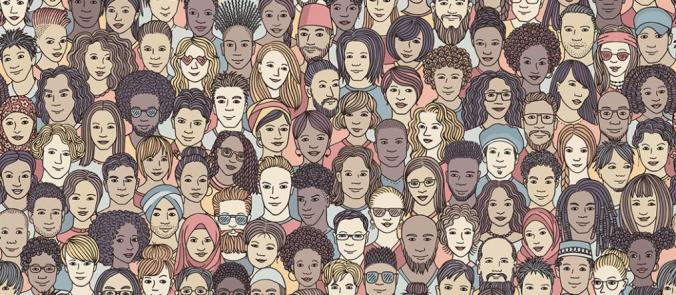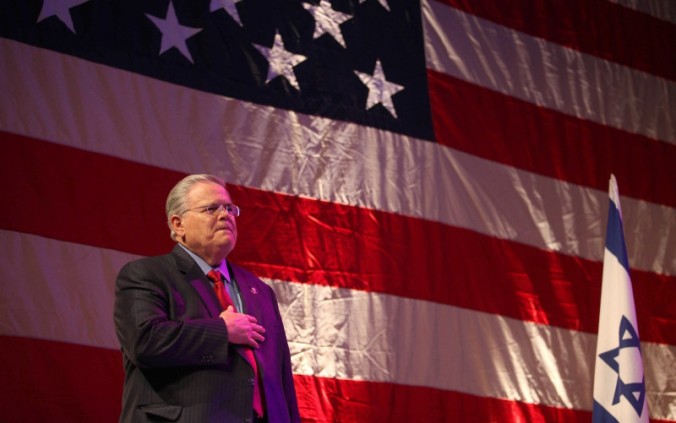 By Giorgi Lomsadze*
By Giorgi Lomsadze*
In one tiny, bustling barber shop in Tbilisi Iraqi men sit lined up in the chairs, having their beards, sideburns and eyebrows contoured into almost geometrically perfect shapes. Their cheekbones, earlobes and even foreheads are shaved, waxed and plucked remorselessly. The barbers, most of them also Iraqis, proceed to mold lush pompadours on their clients’ heads, hairlines permitting.
The barber shop is huddled in a basement, just off David the Builder Avenue, in a Tbilisi neighborhood that has increasingly become the city’s Middle Eastern nook. Here you can get the full appreciation of what serious business looking good is for Iraqi men – and also what sort of interactions they have with Georgians.
The owner – a middle-aged, bulky transplant from Mosul – has an avocado-green mask slathered on his face. His fingers are dipped in hot water bowls. With regal patience he awaits the ceremony of manicure to start and his Georgian accountant’s anti-Arab diatribe to end.
The accountant, an ebullient, neurotically skinny woman, soliloquizes on the damage done to Georgia by Arab invaders across the centuries. She is undaunted by the fact that nobody listens to her history lesson. The barbers only sneak smiles at one another when her voice hits a particularly high pitch. “She does this every day,” one of the barbers told me later. “But she is actually really nice. She brings us cakes and pies every now and then. She also helped me with my visa documents.”
In her tirade, the accountant lingered on how King David the Builder – the name on the parlor’s address – liberated Tbilisi from the Arabs 900 years ago and led Georgia into its Golden Age.
The medieval Georgian king has lately been serving as inspiration to modern-day crusaders. Most recently, his name appeared scrawled on a rifle of the Australian who massacred 50 people in a March 15 attack on mosques in Christchurch, New Zealand.
At home, too, David has served as inspiration to Islamophobes: Two years ago, Georgian right-wing groups marched down David the Builder Avenue, carrying large a painting of the king and protesting the growing Middle Eastern presence on the king’s street.
There is a sad irony in the fact that a killer who targeted Muslims drew inspiration from a leader that regularly attended prayers in mosques, and that Georgian ultranationalists idolize a leader who embraced multiculturalism. They tend to dwell on the Christian king’s military prowess against Islamic powers, but historical accounts also describe David as an ardent advocate and defender of his Muslim subjects: He offered tax exemptions to Muslim residents of Tbilisi, banned Christians from slaughtering pigs in Muslim quarters and acted as a mediator in interethnic disputes.
FULL ARTICLE FROM EURASIAREVIEW
 Rabat, Morocco — Pope Francis landed in Morocco Saturday for a trip aimed at highlighting the North African nation’s Christian-Muslim ties, while also showing solidarity with migrants at Europe’s door and tending to a tiny Catholic flock.
Rabat, Morocco — Pope Francis landed in Morocco Saturday for a trip aimed at highlighting the North African nation’s Christian-Muslim ties, while also showing solidarity with migrants at Europe’s door and tending to a tiny Catholic flock. Around 7:30 Friday night at Temple Sinai in Squirrel Hill, a visitor standing in the hallway could hear the braided sounds of a Muslim imam chanting Arabic prayer in one room and Jewish clergy leading Shabbat worship songs in the nearby sanctuary to guitar accompaniment.
Around 7:30 Friday night at Temple Sinai in Squirrel Hill, a visitor standing in the hallway could hear the braided sounds of a Muslim imam chanting Arabic prayer in one room and Jewish clergy leading Shabbat worship songs in the nearby sanctuary to guitar accompaniment.
 Early in my tenure at Piedmont College, a student who had taken my Religion 101 class decided to become a Jew. As anyone who has tried it knows, this is not the same as deciding to become a Christian. Judaism actively discourages converts, since a person does not need to be Jewish in order to be righteous in God’s eyes. Why take on so many extra responsibilities if you are fine with God the way you are?
Early in my tenure at Piedmont College, a student who had taken my Religion 101 class decided to become a Jew. As anyone who has tried it knows, this is not the same as deciding to become a Christian. Judaism actively discourages converts, since a person does not need to be Jewish in order to be righteous in God’s eyes. Why take on so many extra responsibilities if you are fine with God the way you are? BOSTON –
BOSTON –  The first time I remember hearing Islam equated with terrorism from the pulpit, I was a 17-year-old junior at Heritage Christian School in Indianapolis, where my mom was—still is, in fact—an elementary teacher. It was 1998, long before Islamophobia seized the Western mainstream. My family attended a small, nondenominational evangelical church in the suburb of Carmel, where my dad was the music pastor.
The first time I remember hearing Islam equated with terrorism from the pulpit, I was a 17-year-old junior at Heritage Christian School in Indianapolis, where my mom was—still is, in fact—an elementary teacher. It was 1998, long before Islamophobia seized the Western mainstream. My family attended a small, nondenominational evangelical church in the suburb of Carmel, where my dad was the music pastor. Muslim militants killed 120 Christians in Nigeria during a three-week period in February and March 2019.
Muslim militants killed 120 Christians in Nigeria during a three-week period in February and March 2019.
 Pope Francis, hand in hand with two children, leaves the Basilica of Our Lady of Loreto where, during a one-day visit, he celebrated Mass and prayed in the shrine containing a small house traditionally venerated as the house of Mary, and believed to have been miraculously transplanted from the Holy Land inside the Basilica, in central Italy, Monday, March 25, 2019. The pope chose Loreto to sign the Post-Synodal Exhortation of last October’s Synod of Bishops. (Credit: AP Photo/Domenico Stinellis.)
Pope Francis, hand in hand with two children, leaves the Basilica of Our Lady of Loreto where, during a one-day visit, he celebrated Mass and prayed in the shrine containing a small house traditionally venerated as the house of Mary, and believed to have been miraculously transplanted from the Holy Land inside the Basilica, in central Italy, Monday, March 25, 2019. The pope chose Loreto to sign the Post-Synodal Exhortation of last October’s Synod of Bishops. (Credit: AP Photo/Domenico Stinellis.)
 By Giorgi Lomsadze*
By Giorgi Lomsadze* Eleven evangelical experts weigh in as death toll of New Zealand Muslims hits 50.
Eleven evangelical experts weigh in as death toll of New Zealand Muslims hits 50.